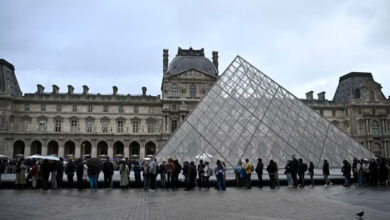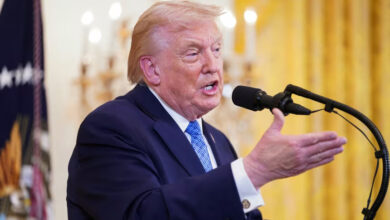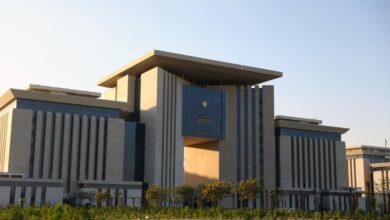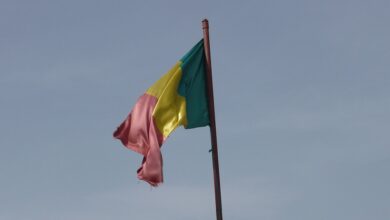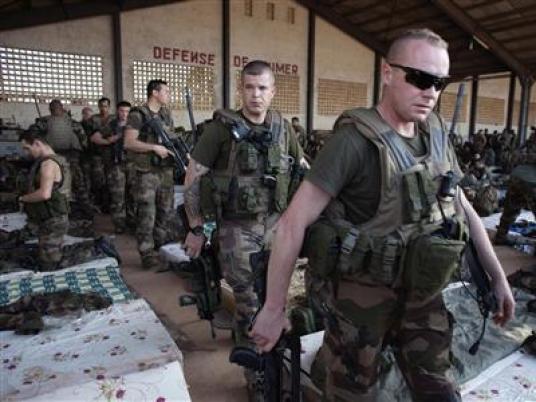
A split emerged on Thursday in the alliance of Islamist militant groups occupying northern Mali as French and African troops prepared a major ground offensive aimed at driving Al-Qaeda and its allies from their safe haven in the Sahara.
A senior negotiator from the Ansar Dine rebels who helped seize the north from Mali's government last year said he was now part of a faction that wanted talks and rejected the group's alliance with Al-Qaeda's North African franchise AQIM.
It was unclear how many fighters had joined the new Islamic Movement of Azawad (MIA) faction. But the announcement will encourage international negotiators who have long sought to prise apart the Islamist alliance, seen as a major threat by Washington and other Western and regional powers.
"There has to be a ceasefire so there can be talks," Alghabass Ag Intallah, a member of the Tuareg tribe, told Reuters from the Ansar Dine stronghold of Kidal in northeast Mali. The new MIA would focus its efforts on seeking autonomy for the northern homeland of the desert Tuaregs, he said.
For nearly two weeks, French aircraft have been bombarding Islamist rebel positions, vehicles and stores in the center and north of Mali as a ground force of African troops assembles to launch a UN-backed military intervention against the rebels.
The strikes halted a rebel advance further south. French and Malian ground troops have also retaken several towns and have been mopping up after the insurgents avoided a head-on fight, abandoning vehicles and slipping away into the bush.
On Thursday, a Reuters correspondent saw around 160 troops from Burkina Faso deployed in the dusty Malian town of Markala — the first West African troops to link up with French and Malian forces.
Reports of reprisal killings
News of the French and African advances have been overshadowed by allegations from residents and rights groups that Malian government soldiers have executed Tuaregs and Arabs accused of collaborating with the rebels.
Mali's army has denied the allegations and the government ordered the armed forces to respect human rights.
But the reports of killings of lighter-skinned Tuaregs and Arabs by Mali's mostly black army has raised the risk that the internationally-backed intervention against the Islamist fighters in the north could trigger an ethnic bloodbath.
"These people took up arms against us, our colleagues were killed … I no longer have any Tuareg friends," one Malian soldier, who asked not to be named, told Reuters.
Outside Diabaly, a town of mud-brick huts amid mango trees surrounded by irrigation canals 350 km (220 miles) north of the capital Bamako, Malian army soldiers captured a group of suspected Islamists found hiding in a local house, said a Malian officer, Captain Samasa, who only gave his first name.
The captives were taken away in a truck, witnesses said.
AU seeks Chinese support
Diplomats gave the news of the rebel split a guarded welcome. "It is not surprising that there could still be significant rifts between what some call the military faction and the political faction," said a US official, who asked not to be named.
The Islamist alliance in the north holds the major towns of Timbuktu, Gao and Kidal. It groups Al-Qaeda's North African wing AQIM, Malian militant group Ansar Dine and AQIM splinter MUJWA, and the numbers of its fighters are estimated at roughly 3,000.
Fears that it could pose a threat to African neighbors and Western powers increased sharply last week when Al-Qaeda-linked Islamist guerrillas opposing the French-led military intervention in Mali briefly seized a gas plant in neighboring Algeria. At least 37 foreign hostages were killed in the incident which ended when Algerian forces stormed the plant.
Reflecting the wider security worries about reprisals, France has ordered special forces to protect uranium sites run by state-owned French company Areva in Mali's neighbor Niger, which supplies uranium for the French nuclear power industry.
Military experts say a fast, efficient deployment of the African ground force, expected to eventually number more than 5,000, is essential to sustain the momentum of the French operations in Mali. The operation will be high on the agenda of an African Union summit in Ethiopia's capital Addis Ababa this weekend.
Most of the African troops for the Mali intervention are coming from member countries of the West African regional grouping ECOWAS, such as Benin, Nigeria, Senegal, Togo and Niger. But the deployment also includes soldiers from Chad who are experienced in desert warfare.
El-Ghassim Wane, director of the AU's Peace and Security Council, said Burundi was also offering troops.
But serious questions have arisen over whether the African force being deployed has the weapons, equipment and training needed to maintain a sustained campaign against the rebels in a desert and mountain battleground the size of Texas.
"It's a process that unfortunately takes a bit of time. It’s never as easy as anyone would like it to be. But the political will is there, the commitment is there," Wane said.
International donors are due to meet in Addis Ababa on 29 January to discuss the African military operation in Mali, and France said they would be asked to provide about 340 million euros (US$452 million).
Wane said that besides the West, the AU was also looking for financial and material support from China for the Mali operation. China was already backing an African peacekeeping operation in Somalia, he added.

